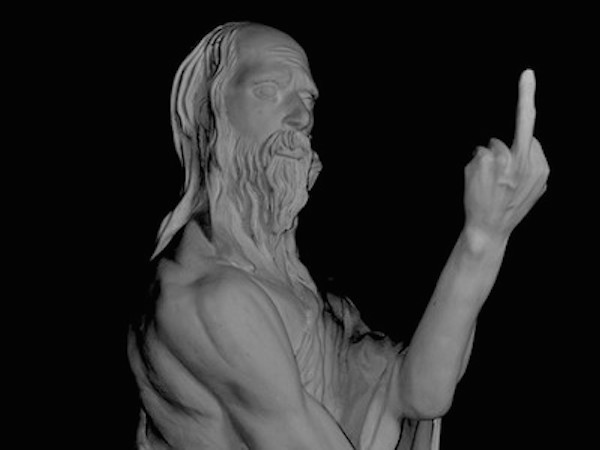So, it’s 30 years since the birth of Britpop, the ’90s phenomenon that started with Suede’s The Drowners and ended sometime after they dragged the Rolls Royce out of the swimming pool from the Be Here Now cover shoot. Naturally, there are the haters and the naysayers, ranging from those who think it was all shit to those who just plain don’t really think it existed.
It’s one of those where the soap obsessives wet themselves when there’s a football tournament once every two years which means EastEnders or Corrie gets moved by an hour or so. Back then you had less choice but now, you can turn it over, turn it off, listen or watch something else. But then they can’t help themselves. They either hated it all or hated some of the bands but loved others that they didn’t believe belonged as part of the scene.
There are those too cool for school who claim they can’t stand poppy Blur like ‘Girls & Boys’ or anything Oasis or the deeper cuts by Pulp are better than ‘Common People’ and that Gene were the best band of the ’90s because they want to be seen at the forefront of the Zeitgeist.
Some hoary old hacks who thought they were at the sharp end of everything that was new between 1993 and 1997 decided they knew better than everyone who were teenagers and young and loved that time. Those in their early twenties already deciding they knew better than the kids and that Britpop was bollocks are now in their late 40s and early 50s and they can’t find their slippers and their back hurts and they need another piss five minutes after sitting down from going for the last one, and they’re annoyed that people still like Blur and probably that they’re even releasing a new LP.
I might be approaching that age but I’m not ashamed that I still love all of that, in fact, I’ve actually discovered that Blur made some pretty fantastic albums in the early ’90s and it’s not all ‘Song 2’ (overrated) and ‘Country House’. There are some of us that appear to want to now decide it was all horrible and pick holes in the whole thing. Of course, it wasn’t perfect, but what is. They seem to think there is some glistening hinterland of the utopian dream where everyone gets an equal share and everyone loves each other. There’s no racism or misogyny of any kind, ingrained or institutionalised. Or maybe they just want there to be one, and who doesn’t? Nigel Farage, the government and the gammon cunts aside.
Besides the obvious jealousy that they were there but hated the scene, the denial of it existing and the vitriol and bile about those being effusive because of their love of the bands, they are pissing on the people who embraced its memories and enjoyment of what they experienced because of their petty, childish whining.
When exactly, according to a national newspaper, was Britpop “once seen as a flag-waving embarrassment partially responsible for ushering in Brexit”? Maybe in the minds of those who wanted to find more fuel to the fire the size of which was only last seen when London went up in 1666. Only those who can only identify any picture of the Union Flag with nationalism and right-wing cuntery could really blame Britpop for Brexit. You might as well blame winning the Second World War, the World Cup in 1966 and 7/7 as well.
I don’t think the whole jingoism was given a second thought really. I know Brett didn’t like being lumped into it all but it was trying to create a scene in British music away from American grunge etc. It was a healthy thing really. People want to attach things to it that aren’t true in retrospect. Like suddenly deciding the early 00’s scene including The Libertines was called Indie Sleaze. No, it fucking wasn’t.
But let’s not get bogged down with the details… actually, let’s. One particularly miserable old prick who prefers to spout lyrical about a performance on Top of the Pops from 1980 from someone only he and three other people remember, decided to go to town on the BBC 6Music podcast series about Britpop (for the record, I don’t like the name either really but we’re stuck with it), by Jo Whiley and Steve Lamacq, who hosted the Evening Session on Radio 1 and championed a lot of the bands we know and love and some we don’t love and some we don’t remember. What a bunch of horrible bastards they are.
He slaps down Jo Whiley’s “utterly revolting dismissal of Lily Allen as a daft girl with no right to a music opinion,” but then says how much he hates Jo’s voice and the whole piece is attacking hers (and Steve’s) opinion slash recollection of the early to late ’90s. Which is it? Can people have an opinion or not?
He goes on to say “with Lamacq & Whiley we felt we were being condescended to less like a family or a community and firmly like a demarcated demographic.” That “we” thing… No, YOU didn’t like it because it was a scene when you were at your prime age writing for a major music paper and you didn’t like the music. Tough shit sugar tits. You aren’t talking for anyone else but yourself. Sure, some people might agree with you but this is your rant and deconstruction of the past.
The thing is, yes, there is a fair amount of hyperbole about its impact. A cultural shift? In certain circles maybe, the Blur vs. Oasis chart battle made the Six O’clock News after all. But only certain bits made it to the national consciousness.
I take his point about them suggesting Parklife was bigger than it was. It wasn’t really a cultural moment, although I don’t really remember them expanding on that in the episode but a chart dance track like ‘Let Me Be Your Fantasy’ is not a “million billion” times better by any yardstick
He’s not short on irony either. “Blur are at their absolute worst when sneering.” You don’t say chief.
Despite his protestations, Pulp were Britpop. They wrote about what it was like in Britain then. Good and bad. NONE of the bands, the major players anyway, wanted to be labelled Britpop. They just were. By the media. THE MEDIA YOU WERE VERY MUCH A PART OF. If you thought it was so sexist and racist, leave and write for someone else. He talks about Whiley’s commercial and corporate voice but he was happy taking the “Kings Reach Tower coin” too
He says everything besides Britpop made the ’90s one of the most exciting periods in pop. And he includes Whigfield in that?!? Please. The memorable chart dance that we all look back on with affection wasn’t groundbreaking. And if it was, no more than Britpop
I suppose, contrary to what I’ve just said above, I don’t really care what he says. For me and a hell of a lot of people, that music means an awful lot. I’ve seen Blur and Noel Gallagher in the past month. If he wants to get upset about it all, crack on, I’ll switch over. Not good for your health though old timer. Don’t look back in anger.




